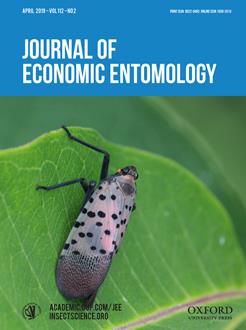The global resurgence of the bed bug (Cimex lectularius L.) and the widespread resistance of this insect to pyrethroid insecticides have created the need to find alternatives to chemical control. Thus, synthetic or natural repellents have been considered as a suitable choice to control bed bug infestations. Repellents not only keep insects away from their hosts, but also allow a decrease in insecticide selection pressure. The aim of this study was to evaluate the repellence effectivity of DEET against two bed bug colonies from Argentina (a susceptible one and a field-collected pyrethroid-resistant one), under two starving periods. We found different repellent effects of DEET on the two C. lectularius colonies and no differences between the two starving periods. In fact, DEET had a lower effect on the insecticide-resistant colony. The methodology used in this study proved to be useful to test the variation of the effect of DEET between pyrethroid-susceptible and -resistant bed bugs.
How to translate text using browser tools
19 December 2018
Pyrethroid Resistance Associated with a Decreased DEET Repellency in the Common Bed Bug (Hemiptera: Cimicidae)
Claudia V. Vassena,
Mariano Cáceres,
Pablo L. Santo-Orihuela
ACCESS THE FULL ARTICLE
It is not available for individual sale.
This article is only available to subscribers.
It is not available for individual sale.
It is not available for individual sale.

Journal of Economic Entomology
Vol. 112 • No. 2
April 2019
Vol. 112 • No. 2
April 2019
bed bug
DEET
insecticide resistance
repellence
starvation




